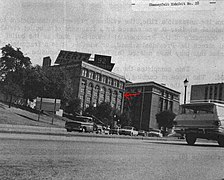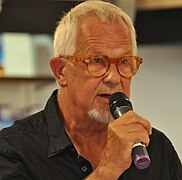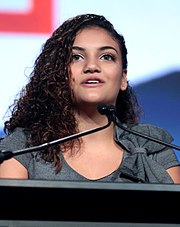Design
Design
Personality
Chart Properties
Your Cross represents the specific theme of your life. This cross embodies your unique potential & the lessons you're here to learn, providing a roadmap to fulfilling your life purpose.
We use the UTC birth time and date to do the calculations required to generate your Human Design chart.
Buy Tokens
Pay as you use, no expiry and no subscription required.Tony Blair's Biography
British politician, elected Prime Minister of the United Kingdom on 1 May 1997, becoming the youngest person to fill the post in 185 years and ending a generation of Conservative rule. Blair served as Prime Minister from 1997 to 2007 and as Leader of the Labour Party from 1994 to 2007. He was Leader of the Opposition from 1994 to 1997.
Blair grew up in a politically-oriented family. His father, Leo, was a trial lawyer and university law teacher at Durham, who started out as a Young Communist but had become a High Tory by 1963 and chairman of the Durham Conservative Association. A stern presence, Leo suffered a massive stroke while preparing to run for Parliament, and was unable to speak for three years. Young Blair was attending Durham Choristers School at the time and felt the financial impact of his father’s health. At age 13, Blair earned a partial scholarship to Fettes, a spartan private school in Edinburgh, Scotland, where he was something of an outsider. A rebel, he took stands against conservative regimes, grew his hair long, and then ran away from school. Upon being re-admitted, he became interested in theatrical productions. Although not an outstanding student, Blair won a place at Oxford and graduated from St. John’s College in the class of 1972.
Blair was not interested in politics during his Oxford years, his single gesture being to attend a pair of rallies against the neo-fascist National Front. Religion seemed to provide a steadying influence, and Blair was introduced to the books of Scottish theologian John MacMurray, which attempt to combine Christian thought and psychology with “community” politics. Blair was confirmed in the Anglican church on the Oxford campus, and remains committed to MacMurray’s principles.
After Oxford, Blair studied law with barrister Alexander Irvine, whose other pupils included a young woman named Cherie Booth from Lancastershire who had graduated at the top of her class at the London School of Economics. The daughter of British actor Tony Booth, Cherie and Blair began seeing each other, and married in 1980. They embarked on a political partnership as well.
In 1982, Blair ran for Parliament as a Labour candidate and came in third. In 1983, he and Cherie, who had been a party member since her mid-teens, ran for seats. Less than three weeks before the general election, a seat opened up in Sedgefield, a Labor Party stronghold. The local party leaders chose Blair as the Labor candidate. Blair won by a substantial majority. (Cherie lost her election and her taste for politics as well.) Blair toiled away in Parliament while Cherie, earning $400,000 a year practicing law, was the principle breadwinner. He was assistant spokesman on the Treasury from 1984 to 1987; became deputy spokesman on Trade & Industry in 1987 and was a writer for the Times from 1987-1988. He was elected to the Shadow Cabinet in October 1988, and elected to the Executive Committee of the Labour Party in September 1992. He became the leader of the British Labour Party after the sudden death of John Smith on 12 May 1994 by running against acting leader Margaret Beckett and John Prescott to win the appointment on 21 July 1994.
The Blairs have four children. Their son Euan was born on 19 January 1984, son Nicky on 6 December 1985, daughter Kathryn on 2 March 1988 and son Leo on 20 May 2000. Leo was the first new baby born to the sitting Prime Minister in 150 years.
Blair was a popular, energetic and persuasive leader, aligning himself with the U.S. under Presidents William Clinton, to whom he was sometimes compared, and George W. Bush. On 13 May 1999, he was awarded the prestigious Charlemagne Prize for his peace-making efforts in Northern Ireland. Calling for an election set for 7 June 2001, he won a second term by a wide margin. He risked his political career when, in the face of domestic and international opposition, he supported the Bush administration’s resolve to declare war on Iraq without UN backing. In mid-February 2003, Blair’s standing in the British polls had evaporated to a mere percentage point over the Conservative opposition. On 18 March 2003, however, he won a crucial vote in the House of Commons authorizing an attack on Iraq even though three government ministers had resigned in protest. His popularity nevertheless diminished. Following up on the state visit of President George W. Bush in November 2003, the British Prime Minister played host to the Simpsons – stars of the popular animated TV series, “The Simpsons.” In the episode entitled “The Regina Monologues,” Blair plays an animated version of himself giving travel tips to Homer Simpson and family. Actor Sir Ian McKellan and Harry Potter author J.K. Rowling also appeared in the episode.
On 19 May 2004, during his weekly half-hour appearance in the Commons, the Prime Minister was hit by two of several projectiles filled with purple powder that were hurled from an upper section of the gallery. The powder was later found to be harmless, and Scotland Yard arrested two men who were guests of Labour Party peer Baroness Golding. Baroness Golding apologized profusely for the incident, which took her by surprise. The dust descended at 12:18 BST according to BBC News, and Commons business was suspended for a little over one hour, recommencing at 1:30 PM BST.
On 30 September 2004, Blair underwent a medical procedure called a catheter ablation to correct a condition causing shortness of breath known as supraventricular tachycardia or heart flutter. Blair returned to work just a few days after his procedure. The Prime Minister’s condition became evident in October 2003.
The British Prime Minister was elected to a third term in the election held on 5 May 2005. This election marked the first time the Labour Party had won three consecutive elections but his party lost a considerable number of seats in the House of Commons.
Blair stepped down from his post as Prime Minister on 27 June 2007. His next assignment was special envoy to the Middle East, representing the United States, Russia, the United Nations and the European Union.
Link to Wikipedia biography
Link to Astrodienst forum archive
Tony Blair
Your Cross represents the specific theme of your life. This cross embodies your unique potential & the lessons you're here to learn, providing a roadmap to fulfilling your life purpose.
We use the UTC birth time and date to do the calculations required to generate your Human Design chart.







